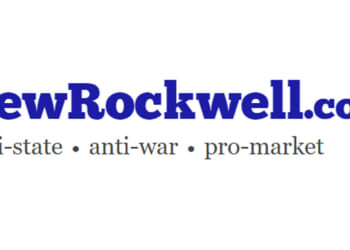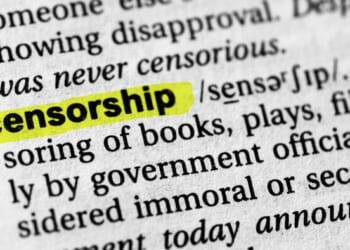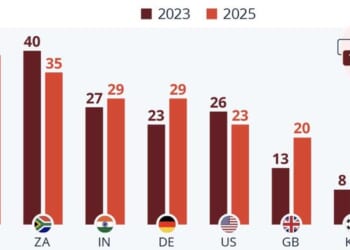As my AEI colleague Shane Tews recently noted, the global leaderboard in technology tells a clear story: Innovation thrives in the United States, not Europe. Twenty of the world’s 25 most valuable companies are American, a testament to the strength of US capital markets, entrepreneurial culture, and regulatory flexibility. Europe, in contrast, is nearly absent from the top tier, represented only by Dutch chip-equipment maker ASML in 25th place.
Rather than compete through innovation, the European Union is opting to assert control over digital companies through sweeping and often contradictory regulation. Its latest move is threatening steep fines against Meta and TikTok for alleged noncompliance with the Digital Services Act (DSA), the EU’s wide-reaching law governing online platforms.

The European Commission (EC) recently issued preliminary findings that Meta—via Facebook and Instagram—and TikTok failed to grant researchers easy access to platform data. According to the EC, the companies’ systems are too burdensome and confusing for researchers, potentially hampering public oversight.
Violations of the DSA can lead to fines of up to 6 percent of global revenue, which looks like an existential risk for businesses and an attractive reward for enforcers. Both companies have pushed back. Meta says it is in compliance and will continue to negotiate. TikTok points out that easing safeguards to meet data-sharing demands may violate another major EU regulation: the General Data Protection Regulation (GDPR).
TikTok has a point. The EU’s digital policy regime is becoming so tangled and contradictory that even the most sophisticated firms cannot be sure what compliance looks like. The DSA pushes platforms to proactively monitor and share data. But the GDPR, passed in 2018, restricts such monitoring and requires firms to justify every bit of personal data they process.
The EU has effectively admitted that this is a mess. Its Data Protection Board issued a 38-page guidance document in September—still in draft form, still under consultation—to provide “coherent interpretation and application of the DSA and the GDPR.” The consultation runs through October 31. But this raises a question: How can companies be held accountable for an interplay of regulations when the regulators have not yet explained it?
What exists is a regulatory maze where good-faith efforts to comply may still land a company in legal jeopardy. TikTok put it bluntly: “Requirements to ease data safeguards place the DSA and GDPR in direct tension. If it is not possible to fully comply with both, we urge regulators to provide clarity.”
The EC says it’s building a coherent digital rulebook, but reality is different. X was the first American platform accused of breaching the DSA. Chinese platforms like Temu and AliExpress have also been targeted. Meta and TikTok are next.
Europe’s pursuit of digital sovereignty may make political sense at home, but it’s an innovation-killing strategy and it’s costing Europe dearly. As the Association of German Banks recently noted, “Europe is a global pioneer in regulating AI. Meanwhile, other regions are world leaders in the development and profitable application of AI.”
That distinction matters. The EU’s goal should be a thriving digital economy—one where European companies can compete with their American and Chinese counterparts. But that requires fostering innovation and being directed by customers’ wishes, not just writing rules.
The platforms under fire have plenty of problems of their own—as businesses always do—and effective regulation has an important role. But when regulatory regimes become so complex that they contradict themselves, the only clear outcome is stagnation—and the only winners are lawyers.
If Europe wants to shape the future of tech, it needs to build, not bind. Regulating what it can’t innovate is not leadership. It’s resignation.
The post Europe’s Tech Strategy: Regulate the Leaders, Then Blame the Lag appeared first on American Enterprise Institute – AEI.











